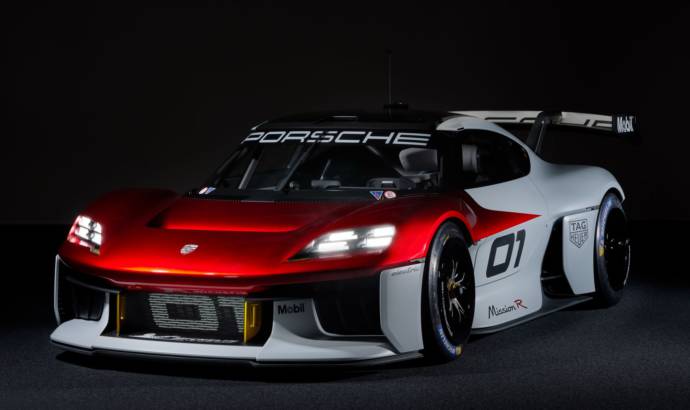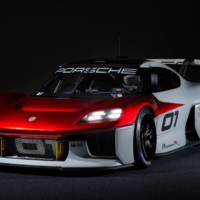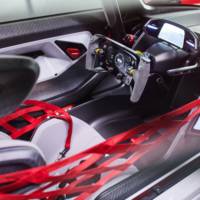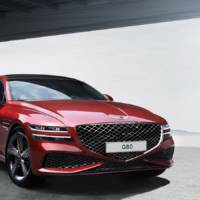Porsche made good use of this year IAA Munchen by unveiling a spectacular concept. The Mission R concept car combines state-of-the-art technologies and sustainable materials, such as natural fibre-reinforced plastics, with a passion for racing. In addition to a progressive design, the extremely low-slung, all-electric competition car features the characteristic lines of the sports cars from Stuttgart-Zuffenhausen.
The two newly developed electric motors incorporated in the Porsche Mission R deliver up to 800 kW (1,088 PS) in so-called qualifying mode. The battery capacity of around 80 kWh and the innovative recuperation system make sprint racing possible with no loss of output.
Customer motorsports enjoy a high level of esteem at Porsche. Since the start of the Porsche Carrera Cup Deutschland 31 years ago, the sports car manufacturer has produced and delivered more than 4,400 Cup cars from Weissach. A total of 30 one-make cup series are held worldwide on the basis of these reliable, high-performance racing cars. The latest version of the 911 GT3 Cup was not launched until the start of this year’s 2021 motorsport season and is based on the 992 model generation. The Porsche Mission R provides an indication of what the future of one-make series with all-electric cars could look like.
The all-wheel drive car delivering just under 1,100 PS in qualifying mode accelerates from zero to 100 km/h in less than 2.5 seconds. Top speed: over 300 km/h. On the race track, the electric racer achieves the same lap time performance as the current Porsche 911 GT3 Cup. Thanks to newly designed electric motors and battery cells – all equipped with innovative direct oil cooling – the Porsche Mission R concept study produces a constant power output of 500 kW (680 PS) in race mode. So-called derating, i.e. reduction of the battery‘s power output due to thermal conditions, has been eliminated. An electric motor with up to 320 kW (435 PS) powers the front axle, while a maximum of 480 kW (653 PS) is delivered to the rear. Thanks to advanced 900-volt technology and Porsche Turbo Charging, a good 15-minute break from racing is all that is needed to charge the battery from 5 to 80 per cent SoC (state of charge). Charging can take place with up to 340 kW. The Mission R also features a further development of Porsche Active Aerodynamics (PAA) with Drag Reduction System (DRS) on the nose section and rear wing. It comprises three louvres in each of the two side air intakes on the nose section as well as an adjustable, two-section rear wing.
With the Mission R project, Porsche is bringing real and virtual racing closer together than ever before. The monocoque driver’s module in exactly the same form also doubles as an esports simulator. The safety structure made of carbon fibre composite material combines high protection potential for the driver with low weight and a distinctive look. Porsche engineers and designers have named the newly developed carbon roof structure the “exoskeleton”. It combines safety cage and roof skin. At 4,326 millimetres in length, the Porsche Mission R is slightly shorter than the current 718 Cayman series, but it is noticeably wider at 1,990 millimetres and with an external height of 1,190 millimetres is also significantly lower.






